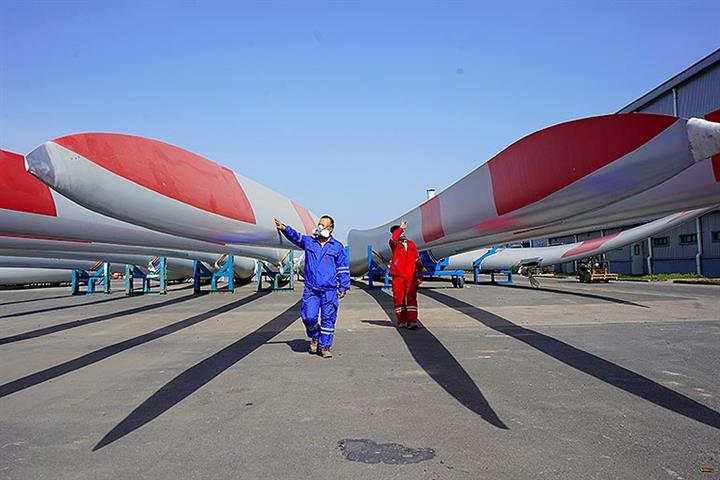 Caixin’s China Manufacturing PMI Climbs in May to Highest in 2021
Caixin’s China Manufacturing PMI Climbs in May to Highest in 2021(Yicai Global) June 1 -- A widely watched private survey of manufacturing activity in China rose for a second month in a row in May to the highest mark so far this year, despite surging raw material prices as demand recovers.
The Caixin purchasing managers’ index for manufacturing rose to 52 last month, the highest since December, according to data published today by financial media group Caixin. The figure was 51.9 in April. A mark above 50 indicates expansion.
China’s factory activity continued to expand last month amid strong demand at home and abroad, a steady supply recovery, a stable jobs market, and a high level of sentiment, said Wang Zhe, a senior economist at Caixin’s think tank. Indeed, demand was slightly stronger than supply.
The headline figure was at variance with the official manufacturing PMI, released by the National Bureau of Statistics yesterday, which showed the expansion in manufacturing activity slowing a little in May, as production sped up but new orders fell. That gauge, which tracks mainly large state companies, fell to 51 from 51.1 in April, though it has stayed above 51 for the past three months.
The Caixin PMI, also known as the Caixin-Markit PMI, surveys 500 businesses that are typically smaller and private.
Domestic and overseas demand surged last month, supporting sales growth, the Caixin survey’s sub-indexes showed, with the indicator for new orders hitting the highest mark so far this year.
Companies also reported the strongest growth in new business in five months. That led to a further increase in production, but a shortage of raw materials and high prices dampened supplies.
Prices continue to rise. The purchasing price index rose to the highest level since January 2017, moving into positive territory. The surveyed companies universally said that higher commodities’ prices drove up costs.
Firms generally passed increasing costs on to their customers by hiking product prices, causing the ex-factory price index to soar above 60, its highest since March 2011.
Manufacturing companies expect demand to grow in the next year, but optimism has fallen to a four-month low, largely on worries over rising costs and an uncertain outlook due to the Covid-19 pandemic.
Editor: Peter Thomas